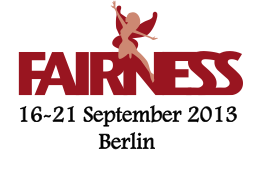Speaker
Dr
Marius C. Mertens
(Justus-Liebig-Universität Gießen)
Description
The PANDA-Experiment at the future FAIR facility in Darmstadt will implement a Micro-Vertex-Detector (MVD) and a large-volume Straw Tube Tracker (STT) around the target interaction region together with a set of GEM disks for the charged particle tracking within a 2 T solenoidal magnetic field. The STT is a gas based detector which is comprised of 4636 cylindrical drift chambers (straw tubes) of 1 cm diameter and 150 cm length, filling an almost cylindrical volume from 16 cm up to a radius of 42 cm around the MVD.
At PANDA a continuous readout mode of the detectors is required due to the broad range of different event topologies and the very high interaction rate of 2*10^7 annihilations per second. Due to the similar topology of the interesting physics events and the hadronic background, PANDA will use an online event filter which uses high level information (PID, momentum, invariant mass, etc.) to distinguish signal events from background. Such high level information must be reconstructed in a continuous manner and tracking is a key input to do so.
I will present an online tracking scheme for PANDA which is designed to continuously reconstruct all particle tracks to provide the required input for the online event filter. A variety of algorithms is foreseen to allow an optimized, staged processing of the incoming data.
I will also present a fast and efficient track finding algorithm. It works without knowledge of the event time and is based on the detection of hit triplets in the STT. It is based on the identification of hit triplets within a certain time window. It is then particularly simple to analytically calculate the circle parameters of the track helix' projection into the xy-plane. Due to its simplicity it is suitable as an early algorithm in the aforementioned online tracking scheme and can provide seed information for subsequent algorithms.
This work was supported by BMBF, HIC4FAIR and Forschungszentrum Jülich GmbH.
Primary author
Dr
Marius C. Mertens
(Justus-Liebig-Universität Gießen)

